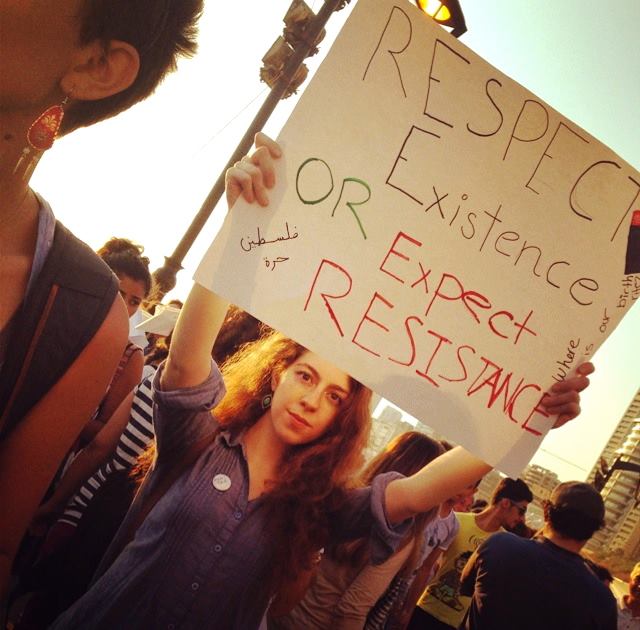Category Archives: Blog Posts

Peace Fellows Now Open!
The Peace Fellows Program at Hofstra University is officially accepting applications for the 2015 spring semester!
The LI Alliance Peace Fellows Program is working with Hofstra’s Center for Civic Engagement to find undergraduate and graduate students that are interested in peace, nonviolence, and alternatives to war and conflict.
This fellowship is open to Hofstra University students only.
Our Peace Fellows Program introduces participants to deliberative discussions using the National Issues Forum, advocacy and organizing, as well as a great range of social justice networking opportunities with professors, board members, and local activists. Past fellows have gone on to work for congressional campaigns, non-profit organizations, and independent news media outlets. The semester-long program will include readings, weekly meetings with briefings and discussions, lectures, training in deliberative dialogue techniques, and an assessment of the program.
Please fill out the application here: goo.gl/CSozJd and send in a resume, two references, and a copy of your schedule to longislandpeace@gmail.com.
We will review your answers and follow-up with a request for an interview as soon as possible.

Questions for 2014 Congressional Candidates
2014 LI CONGRESSIONAL CANDIDATES
1. Do you support or oppose the repeal of the 2001 Authorization to Use Military Force, allowing the executive branch to use military force? Why?
2. Do you support or oppose current U.S. policy of providing training, assistance and weapons to rebels to defeat ISIS in Syria and Iraq? Why? Is there an alternative?
3. Do you support or oppose the withdrawal of all U.S. military forces in Afghanistan sooner than the Adminstration’s proposed 2016 date? OR do you support keeping about 10,000 forces in Afghanistan as agreed to in recent Bilateral Security Agreement? Why?
4. How would you avoid a new cold war between the U.S. and Russia over Ukraine? What specific actions would you propose?
5. Would you vote for or against cuts in the Trillion$ military budget to support needed domestic programs? Why? What would you cut?

Noura Kiridly on War in the Middle East
I understand that you want to read about other things and that the Middle East seems far away and just a crazy place where a lot of barbaric things happen and maybe there are even random buzz topics you can recite, like “Sunni-Shitte conflict” or “Israeli-Palestinian conflict.” But I want everyone to really try and understand something, deeply and truly. People — real, living, breathing, eating, loving, people — live in these countries. They are not others; they are not barbaric; they are people exactly like you, and they suffer every day from the rapid and continuous destabilization of their countries, the entire region, the political and economic structures, and live in fear for the future. They are forced with the unpleasant question of leaving a home they grew up in, leaving their culture behind, and trying their best to move somewhere else or live a life in constant fear of death and destruction of everything they’ve worked for their entire lives. I want you to understand that we have been at war with the Middle East for decades. I want you to understand that we have consistently invaded and consistently put leaders in power that have done nothing good for the countries at hand. I want you to understand that money and greed are behind 90% of political actions.
We’re going to war everybody, and if you think things are going to slow down, re-think that, and get angry.
Written by Peace Fellow Noura Kiridly and reproduced here with permission.
Newsday Letters: Call to war in Syria Not Examined
Executive Director Margaret Melkonian was published in Newsday this weekend calling for no war in Syria:
Responses from our elected officials on Long Island were very disheartening and ignored, once again, the perilous consequences of U.S. military intervention. Entering into another war in the Middle East disregards the lessons of Iraq and Afghanistan — that there is no military solution to end these civil wars, and that airstrikes will only fuel Arab anger and increase terrorist recruitment as their civilians are killed.
Rather than airstrikes, the United States should use our leverage and power for negotiations. A long-term political solution is required that includes the United Nations and all parties of the countries involved.
We cannot afford another decade of war; it will destroy our country and our democracy. This president was elected to end wars, not to start a new one in Syria.
Margaret Melkonian, Uniondale
Editor’s note: The writer is director of the Long Island Alliance for Peaceful Alternatives.
http://www.newsday.com/opinion/letters/letters-call-to-war-in-syria-not-examined-1.9298544

Update on Our Past Fellows!
With summer slowly coming to an end and students moving back onto campus, we’ll shared some of the activities our Peace Fellows have been up to since the program ended and throughout the summer on our Facebook page. Here are the posts:
Meet Mishaina Joseph!
This summer she went to the inaugural PULSE institute, a week long program spent discussing issues like sexuality, gender, race, socio-economic status. This is part of the Sustained Dialogue Network, whose mission is to create personal relationships through dialogue as a mean of conflict resolution. Everyone is asked to talk about these issues through a personal lens, making it easier for people to relate to one another. She is excited to share that the group of 5 students who attended are committed to bringing the program to campus.
She says, “ I cant wait to show the Hofstra community what we have planned for them.”
Meet Tara Hamilton!
Tara was a member of our first Peace Fellows program in the spring of 2013. She has continued studying Early Education and History into her third year. Last semester she was inducted into the History Honor Society Phi Alpha Theta. She’ll be treasure of Hofstra’s chapter of the Roosevelt Institute, the biggest national student-driven policy organization.
She has worked with the alliance as an intern since her fellowship ended and we are happy to have her on board once again this upcoming year!
Meet Johannes Sorto!
He says, “Since being part of the first Peace Fellows Program, most of my time has been spent at 88.7FM WRHU, Hofstra’s own radio station, where I host a morning talk show discussing current events. I have been following events around the world very closely and have been doing my best effort to inform my community about issues in Ukraine, Syria, Iraq, and the ongoing Israeli-Palestinian conflict.”
Meet Blaine Volpe!
This summer, she interned for Senator Sherrod Brown as a legislative intern in Washington, D.C.. She was also re-elected as President of Hofstra Democrats and is now the Long Island Region Chair of College Democrats of New York . She’s also been working as Vice President of Hofstra’s chapter of the Roosevelt Institute and Treasurer of the Pre-Law fraternity, Phi Alpha Delta.
Blaine has also managed to pick up two new majors, Global Studies and Geography.
Meet Denisse Girón!
Right after her time in the program ended, Denisse began a 6-month fellowship with Make the Road New York and then brought her experience there to campus when she joined Hofstra’s Center for Civic Engagement as a fellow. She has also been working with the online magazine Everyday Feminism since January and this summer she interned at The Brotherhood/Sister Sol in West Harlem to work on fair policing and youth organizing.
We are happy to have her work with us again as an intern this upcoming year!
Meet Jeanine Russaw!
Jeanine is now a senior, graduating in May 2015. After completing the pilot Peace Fellows program as a sophomore, she has had internships with the political news program at NY1 and has become a freelance writer for PeaceVoice.info and WagingNonviolence.org. This semester she will be interning with Democracy Now!
Her work will be expanding on her blog, jeaninerussaw.com — be sure to check it out!

Jeanine Russaw on #BringBackOurGirls
Our former Peace Fellow Jeanine Russaw was published in PeaceVoice (Oregon Peace Institute) last month, talking about the #BringBackOurGirls campaign and the effectiveness of online activism. Check out the full article below and here.
Global Justice for Our Girls: Hashtags and Selfies Still Aren’t Enough
by Jeanine Russaw
Thirty. Twenty. Fifteen.
She puts up a good fight: struggling, kicking, and biting are just par for the course. Not to mention, she’s used to it; it’s happened before. Ten. Five. She lets out an agonizing scream. Zero.
It’s too late. She’s gone. Thirty seconds is all it takes for a girl to be taken from her world and everything she knows. For the276 Nigerian girls kidnapped by the Boko Haram in April 2014, life was forever changed in 30 seconds and they are not even aware of the barely consistent tweeting and micro-blogging that has been done on their behalf. Sixty-three of the girls escaped earlier this month, and there are Nigerian governmental attempts to provide reparations. But there is a lot more to be done for the women and girls remaining – in Nigeria and beyond – and hashtags and selfies just aren’t enough.
“Every year, at least another two million girls worldwide disappear because of gender discrimination.” Nicholas Kristof and Sheryl Wu Dunn found this distressing statistic on their quest to shed light on deadly sexism with their 2009 book, Half the Sky: Turning Oppression into Opportunity for Women Worldwide.
The chilling reality of sexism in the developing world presented by Kristof and Wu Dunn is one that often keeps me awake at night. Perhaps the most troubling is the lack of meaningful action taken by my fellow Americans who, aside from the occasional hashtag #BringBackOurGirls, or a selfie with a poster, are not immune to apathetic attitudes in the face of blatant sexism – even in their own backyards.
Of course, hashtags and selfies by themselves are not inherently bad. Rather, the problem lies in what they represent. This form of citizen media is indicative of nothing more than a fad and when the trend fades away, so does the concern. Since when did it become okay for the lives of innocent young women to be viewed as “the next big thing?” All of a sudden, it was considered “hip” to care about the wellbeing of women and post a selfie with the hashtag #BringBackOurGirls – as if that is actually going to transport the ladies to a safe home with their families.
The rising use of this hashtag occurred with First Lady Michelle Obama’s own influential selfie. While there can be no fault found in the Obama’s support for the delicate situation, sensationalism can often blind us to the issue at hand. We become infatuated with the idea of taking some immediate military action as opposed to actually acting on our ideals. Hashtags and bombs are not the only options.
I’m not suggesting that we have to get on the next plane heading to Nigeria and demand to meet with Boko Haram leader Abubakar Shekau, but we can at least take the time to become educated about the true goings on of Boko Haram beyond Twitter and #BringBackOurGirls. Only then can we think logically about our collective role in the struggle.
There are many options we can take to help provide justice for girls and women in Nigeria and worldwide, and we should feel compelled to do so. Of most importance is to actively align ourselves with organizations and activists who are already working against global oppression of women. Such as She’s the First, which sponsors worldwide female education with the intention of “creating our next generation of global leaders.” Another example is Girl Up, which has been active in bringing awareness to ongoing gender discrimination by “uniting girls to change the world.” Then there is my personal favorite, Kristof and Wu Dunn’s Half the Sky Movement, which “turns oppression into opportunity for women worldwide.”
And, our fight against gendered violence can’t stop at man-made, national boundaries. As the release date of Kristof and Wu Dunn’s latest book, A Path Appears, approaches, we must realize a serious injustice: that geographic location is often the only difference between our suffering and their suffering. As a young American woman, I am no different than those of Nigerian descent. That could just as easily have been me – or you – had I been born of Nigerian parents as opposed to Americans ones. Remove the geographic, genetic lottery and an injustice to one looks a lot more like an injustice to all.
How do we make the world safer and eliminate the terror for those of us born without a Y chromosome? No, the answer is not:Let’s hashtag a selfie about it! As well, the answer is not: Let’s send over some advisors and weapons! Our fight against global sexism and gendered violence must remain resolute, but preventing and eliminating gendered injustices, at home and abroad, must center on active participation in and full support of civil society movements already engaged in the struggle.
Jeanine Russaw (@jMarieRussaw), writing for PeaceVoice, is a multimedia journalist, freelance writer and a senior at Hofstra University majoring in journalism and global studies and concentrating on human rights reporting and female/minority empowerment.
Things to Remember When Talking About Immigration

Another year has passed with a failure to bring a comprehensive immigration reform to the Congressional floor. With this in mind, the greater organizing community has even shifted away from reform and brought new attention toward ending deportations by asking President Obama to use his executive powers. But now with the increasing number of child migrants currently in the news, immigration has once again been the subject of ridicule and condemnation from mass media outlets and even our own political leaders. Oh, how easily we seem to forget history.
Seriously, we have really forgotten key parts of the immigration conversation.
Many people around me don’t seem to know how to talk about immigration. Most play it off with a simple “Yeah, it’s a difficult situation” in an attempt to appease my feelings, while a few others charge head first into the economics of allowing more citizenship. Between the fear of insulting my Latino heritage and purposefully trying to insult it, many of those I’ve run in to seem to have forgotten a lot of details that really frame why we need an immigration reform.
So this is a note to all of those out there talking about immigration — students, political leaders, self-proclaimed Liberals, community organizations, friends, and family: when talking about immigration, let’s not forget…
1. The History of US Intervention
“They never teach us in school that the huge Latino presence here is a direct result of our own government’s actions in Mexico, the Caribbean and Central America over many decades — actions that forced millions from that region to leave their homeland and journey north.”
That’s one of the opening lines in the film Harvest of Empire: A History of Latinos in America, originally a book written by journalist Juan Gonzalez. This book outlines the long history of the United States’ intervention in Latin America, including countries like El Salvador, Mexico, Cuba, Dominican Republic, Guatemala, Nicaragua, and Puerto Rico. Now, if there was one book that I could recommend to all those immigration “experts,” it would be this one. As a historian, it’s important to me to acknowledge the US’s intervention, military aid, and financial assistance to oppressive government in Latin American throughout the 20th century.
One of the biggest examples out of these is Guatemala. In 1944, a civilian government was finally elected on a platform of ambitious land reforms. However, The US’s C.I.A. helped orchestrate a government overthrow against President Jacobo Arbenz in 1954 and installed a right-wing military dictator that would benefit them and the United Fruit Company. For the next forty years, Guatemala was plunged into political civil war.The leftist groups against the government aligned with the Mayan tribes, which eventually turned the right government against all Mayans. This soon became a ‘dirty war’ tactics: In 1966, Guatemala pioneered the use of forced disappearances through U.S.-trained death squads, tortures and executions, and even dropping bodies into the Pacific Ocean.

The height of the civil war was reached under dictator Efrain Rios Montt, who was a graduate of Fort Benning military base in Georgia. Ríos Montt enjoyed close ties with the Reagan administration and with conservatives in the United States and his reign is known as the bloodiest period in Guatemala’s history. During that time, the Guatemalan government led a campaign to wipe out an estimated 70,000 indigenous peoples.
When Fox New correspondences claim that immigrants come with a history of violence, I only shake my head at the thought that the true history of violence comes from the United States. What would have these countries been today without North American political manipulation?
And just think — this is only one summary of the US’s intervention in Latin America. Interested in the history of other countries? Check out the Center for Justice and Accountability’s easily accessible one-pagers.
2. This Isn’t Just a Latino Issue
We frame immigration as solely Latino issue and that’s a problem. Although Latinos may be statistically the highest number of undocumented immigrants currently in the US, we are by far not the only ones.
Remember how a few seconds ago we outlined how the US liked to put its two cents in Spanish-speaking countries? Well, the same is true in a lot of other places.
Take Haiti, for example, which shares an island with the Dominican Republic. When the U.S. invaded in 1915, they drafted a new constitution and founded the Forces Armées d’Haiti (FADH), an institution that ultimately become an obstacle in creating democracy in the country during the 20th century. Outside of Haiti, the US government is notorious for supporting the Dominican dictator, Rafael Leonidas Trujillo, who made it a mission to wipe out any trace of Africanism while in power. In 1937, Trujillo ordered an attack on the border between the Dominican Republic and Haiti, slaughtering tens of thousands of Haitians as they tried to escape. The American occupation and support for Trujillo left a strain on Haiti-U.S. relations and disparity in Haiti.
Escaping the results of this, many Haitians live abroad, chiefly in regions by North America. In the United States alone there are an estimated 975,000 people of Haitian ancestry, according to the last census. The Center for Immigration Studies claims that at the best estimate, there are between 75,000 to 125,000 undocumented Haitian immigrants in the country.
The story of Asian immigration isn’t all that nice either, even when taught in classrooms. This can date back to 1882 and the Chinese Exclusion Act. During the early stages of the gold rush in the 1840s, Chinese immigrants were barely tolerated and generally not well received. The exclusion act ceased all immigration of Chinese laborers.
At the same time, the American government began targeting Asian immigrants by passing the Page Act of 1875. This said that anyone considered “undesirable” would not be allowed to enter, with a special emphasis on Asian women. By not allowing women to enter through the US borders, the Chinese were unable to create families that fostered their cultures, as well as leaving American men married to Asian women during World War I ultimately helpless. The act was also successful in keeping the ratio of females to males low.
It wasn’t until the 1940s when these acts were fully repealed, allowing growing waves of Asian immigration. Currently, Indians, Chinese, and Filipinos are the largest Asian ethnic groups immigrating to the United States.
Immigration is not just a Latino issue. By excluding other groups from joining talks about immigration, we lose support, allies, and a true unification to bring progressive policy forward on the Congressional floor.
3. Our Most Marginalized
Like most of history, men seem to be at the forefront. I will continue to push back and say that there are 3 vital groups that we need to include in any talk of reform, too: children, women, and queers.
The current child migration crisis has actually brought a lot of light to youth and immigration. The importance of the “new” crisis is that the numbers have reached a peak.
It’s about damn time we addressed the crisis with our youth.
The reality, however, is that youth and children have always been crossing our borders. In 2010, the film Which Way Home documented the hardships youth between the ages of 12 and 18 faced when crossing the US-Mexico frontier. By that point, about 8,000 children were being led in either alone or through smugglers across the North American border. And why were they leaving? Many haven’t seen their parents in years and this is their attempt at a family reunification. But others are assuming responsibility as young adults and they want to get jobs in the United States to work and send money home for their parents.
Those left back at home are also important people to think about. The decision to emigrate to North America is big for all members of the family, but wives remaining in native countries are too often left out of the dialogue.

A majority of the time, men are the ones to leave for the states, leaving wives and children at home. And the journey into the US is not easy and immigrants cross knowing that they may not make it to the other side. Statistics show that deaths along the Mexican border have gone up almost 30% within the last two years. This leaves women to raise kids alone without that extra income. They can be left with few options: lean on family for financial support and care, send their kids out to work instead of school, or take the risk of trying to cross the borders themselves. And there is no need to argue to growing levels of violence against women on the border.
When their partners do make it across, wives are often left without communication from their partners starting from the first day of leaving up until they can find a source of communication — which can be weeks. And then there is always the possibility that their husbands may decide to never communicate with them. I’ve seen men fall in love with other women here in the states and leave their families back at home in favor of their new ones. What are mothers to do then?
And then we take a look at the queer community.
Before the Defense of Marriage Act was struck down last year, LGB people could not benefit for marital benefits like heterosexual couples. This meant that although a couple, one being a US citizen and the other an immigrant, may have been together for as long as an international visa permitted, the couple could not get married in any state and the non-citizen partner could not file for citizenship if (somehow) married. Once their visa was up, the couple was forced to separate or stay in constant fear of being deported. Luckily, DOMA was struck down and immediately couples rushed to the altar.
The new challenges comes when policing queer bodies. Last year, the National Center for Transgender Equality released a report, stating that undocumented transgender immigrants are “among the most vulnerable to discrimination and violence in employment, housing, healthcare, and opportunities for citizenship under current US immigration law.” Approximately 39% of undocumented transgender people say that they have lost their jobs due to workplace discrimination. And with the accessibility of public documents, transpeople could easily be outed by someone else.
If a transgender person is arrested, they face the possibility of time in immigration detention centers. According to the report, that could mean being forced into segregated detention similar to solitary confinement. In a worst case scenario, they can be sent back to their home countries.
Immigration is an issue that can be brought forward with policy that benefits those that most need it. I completely understand that is not an easy conversation to have. With the back-and-forth game our government plays with immigrant lives, many have slipped out of this important conversation. But here is to loud call to our community and political leader to remember our people — ALL people.
This post was crossposted with permission from the writer.

Become A Hofstra Peace Fellow!
BECOME A PEACE FELLOW IN SPRING 2014
What is the LI Alliance Peace Fellows program?
The LI Alliance Peace Fellows Program is a peace education and issue advocacy program, in collaboration with Hofstra’s Center for Civic Engagement. It focuses on peace, nonviolence and alternatives to war and conflict in the context of Gandhi and Martin Luther King, Jr. Fellows will examine The US Role in the World – by exploring the issues of peace, nonviolence, human security, and the global challenges that we face in the 21st Century and by Reimaging U.S. Foreign Policy. Peace Fellows will engage in training to facilitate deliberative discussions on campus about current policies and possible alternatives. Fellows will participate in issue advocacy and organizing training. The semester-long program will include readings, weekly meetings with briefings and discussions, lectures, training in deliberative dialogue techniques, and an assessment of the program.
LI Alliance Peace Fellows Requirements (5 hours a week):
Read briefing packet materials on issues and conduct additional research
- Participate in weekly discussion sessions – TWO HOURS A WEEK.
- Attend lectures and film nights (International Scene, CCE sponsored events)
- Plan deliberative dialogue sessions as part of CCE’s special events
- Collaborate with the Peace Fellows Coordinator for promoting peace education
- Participate in trainings on issue advocacy, deliberative discussions and organizing
- Brainstorm ways to approach issues raised in your training and research
- Maintain a journal and submit an evaluation form
LI Alliance Peace Fellows SPRING 2014 Schedule:
- 1. Orientation & Overview of US Role in a Changing World
- 2. Peace and Nonviolence
- 3. Deliberative Dialogue Training
- 4. War and Peace: Conflict Case Study (Afghanistan)
- 5. Nuclear Proliferation & Disarmament
- 6. Deliberative Dialogue at Hofstra
- 7. Military Spending & Budget Priorities
- 8. Global Climate Change
- 9. Issue Advocacy Training
- 10. Role of Media and Public Understanding of Foreign Policy Issues
There is a $500 stipend for the semester after proper completion of the requirements of the program. For more information and an application, email longislandpeace@gmail.com
Deadline: February 13, 2014. Program begins February 20

Notes from the CodePink Drone Summit
Drone Summit 2013 Notes
by Denisse Giron, Long Island Peace Intern at Hofstra University
Drones Around the Globe: Proliferation and Resistance –
Conference in Washington, DC, Nov.15-16, 2013
Hosted by Code Pink & many others
Dr. Cornel West
-“This is a love movement…love is what justice looks like”
-“Rich kids get taught, poor kids get tested” – on end of art programs
-“I come from a generation of people lifting their voice, not raising echoes [of mainstream media].”
-Education vs. schooling
-The importance of engaging in non-violent street action with a moral and spiritual foundation based on principle
-Congressional briefing with drone victims from Yemen: Tuesday. 11/19 @ Rayburn Building Room 2455, 4pm
Mary Ellen O’Connell – Kroc Institute
-Bush administration failed to acknowledge drone program + entered Yemen in 2004
-Days after entering office in January, Obama authorized a drone strike that killed a family, including a 5 year old
-Obama ordered doubling of drones when comparing 2008 to 2009 (Bush Admin vs. Obama Admin)
-United Nations Charter, Article 2: general prohibition to the use of force
-Article 51: gave exception to 9/11 because was in defense, but does not justify drone strikes because there is no armed conflict
-Self-defense ended in Afghanistan after 2002 – strikes are unjustifiable
-Attorney General Eric Holder said drone strikes within the US are unlawful but why not overseas? Biggest Al-Qaeda attack was in the US
-Need peace, reconciliation, and anti-terrorism around the world
Pardiss Kebriaei – Center Constitutional Rights
-500 = conservative number for people killed + 4,000 = liberal number for people killed (But neither number correctly reflects psychological trauma)
-Department of Justice’s definition of “imminence” doesn’t require clear evidence of specific attack in the immediate future
-Of thousands killed, US government only acknowledges 4 killed, all US citizens
-Many negative views and accusations of Anwar al-Awlaki
Marjorie Cohn – National Lawyers Guild/Association of American Jurists
-Congress only gave authority to defend against the people and organizations that carried out, aided, and supported 9/11 attacks = currently breaking law
-Congress has ability to executive check of powers
-Desmond Tutu in response to Senator Rand Paul’s filibuster: how dare you say that US lives are more important than others
-Armed but not lethal drones at Mexico-US border (rubber bullets)
Entesar al Qadhi -From Merab, Yemen
-First drone strike in her area 2002
-Most recent attack during celebration of Eid – 3 schoolboys killed
-Targets are supposed to be AQ but innocent victims are 16-30 years old
-Before US interference, did not know what AQ was
–Merab is one of the most resource rich areas, especially oil, but there are no universities
-“If you are against terrorism then you are against drones”
-New US focus in Yemen because government is absent in Yemen
Chris Cole – UK Drone Campaign Network (dronewars.net)
-3 nations have used drones: United States, Israel, and United Kingdom
-12 nations have faced drones strikes
-Drones bypass the need for boots on the ground and media scrutiny
-UK carrying out approximately 40% of drone strikes in Afghanistan = about 2 drone strikes per week
Elsa Rassbach – CODEPINK
-Germany has the most drone bases in Europe
-Many political parties, including SDP, agree to an international ban on fully autonomous drones
Dalit Baum – American Friends Service Committee/ Who Profits from the Occupation
-Israel is largest exporter of drones
-Gaza Strip approximately 25 miles long with 1.6 million people (1 million living as refugees)
-Heavily armed bulldozers used in Israel in refugee camps to take down houses, raids
– One report of man using bulldozer while drunk
-Have begun use of unmanned bulldozers controlled by remote controls, mostly women
-Heat sensors
– Said to be used to “reduce harm to human lives” despite exceeding the number of on-the-ground attacks
Faisal bin Ali Jaber
-Brother in law Salim gave lectures on targeted attacks and whether they actually were for AQ but no freedom of speech in Yemen
-After 22 hours into son’s wedding, 4 drones came down and killed Salim and nephew
-Before strike, officials came to make sure that Salim was home
-Great psychological damage in family: lost job and Salim’s mother went into a coma and died
-Described drones as toys in the sky = became accustomed to their presence
-“I am surprised we are fighting AQ…what is the definition of AQ?”
Baraa Shaiban – National Dialogue Conference
-Obama said anyone seeking democracy will find a friend in the United States but actions speak louder than words
-“No one would have thought that president who said he was a friend would authorize Special Forces to kill in secret”
-Tie between drone buzzing and PTSD
Amie Stepanovich – EPIC’s Domestic Surveillance Project
-Drone’s very reason for existing is surveillance
-Camera being developed to see what you are carrying in your bag
-Electronic stop and frisk
-In 2012, Congress passed law to use drones within the United States by 2015
-Customs and Borders have highest number of drones
-Last week, posted drone release rules…(not all written)
-Test sites have privacy policy that must be public
-Annual review of test sites
-Updates when necessary
-All drones in use at test site
-Problem: there are 6 test sites in total so will have to go to each instead of one head
-There is no law or regulation saying that drones in the US must be unarmed
Joe Nevins – Vassar College
– book is Operation Gatekeeper and Beyond: The War on Illegals
-US spends $18 billion in border security and enforcement
-40,000 border agents in the Senate’s version of the comprehensive immigration reform 2013
-VADER: Vehicle and Dismount Exploitation Radars (at borders)
-There are currently 10 drones total on both Mexico-US, Canada-US borders
-6,000-7,000 bodies have been found at Mexico-US border
-Functions like modern apartheid – militarization and drones at the border separate between privileged and the poor
Daniel Hale – former US soldier
-Former intel analysist
-“I made an oath to protect the Constitution…when I deployed to Iraq, I realized that we were not there defending it nor did we have a real relationship with it”
-Stark contrast between living in Iraq/being in military and living in New York (military life vs. civilian life)
-Military extremely conservative
-“We as individuals have a lot of power in dialogue”
Fahima Vorgetts – Afghan Women’s Fund
-Soldiers are leaving Afghanistan but we are beginning strategic relationships with military business = “The war is not over, the war is changing”
-Mainstream media shows drones in positive light (killing AQ) but does not cover immoral side of story
-“Did we think about the blood on the other side?”
-Bush: 52 drones, Obama: over 400
-We are creating more enemies, more Taliban (growing anti-North American sentiments)
Colonel Morris Davis – former US Air Force officer/
chief prosecutor of Gitmo military commissioners
-Utilized surveillance equipment on drones and took orders via chat
-Tillman was used as a poster boy for the war and recruitment until truth about his death was revealed (friendly fire)
-Of age males = guilty by association
“I prefer to see my actions as civil resistance rather than civil disobedience…we are there to uphold the law” – answer during Sunday workshop






